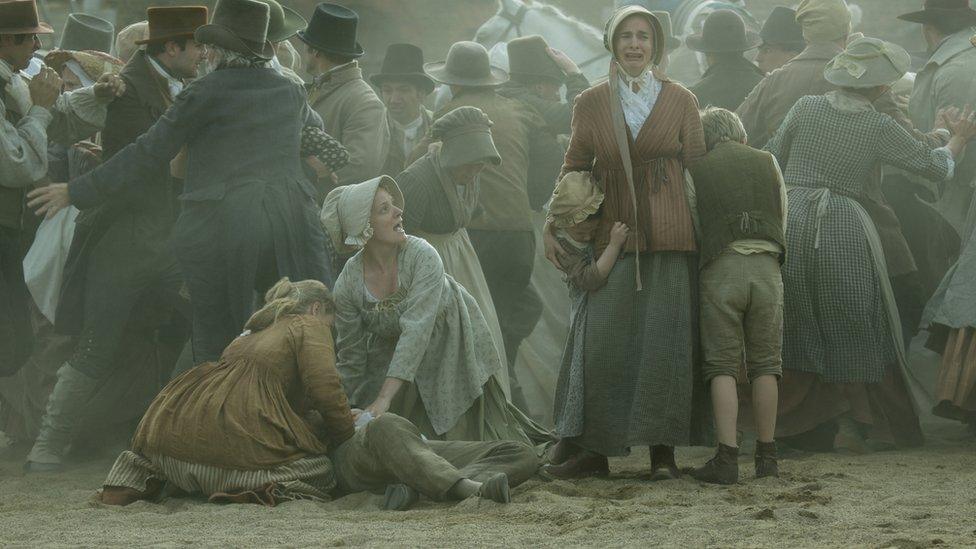Peterloo Massacre: Tracing the relatives of the Failsworth Reformers
- Published
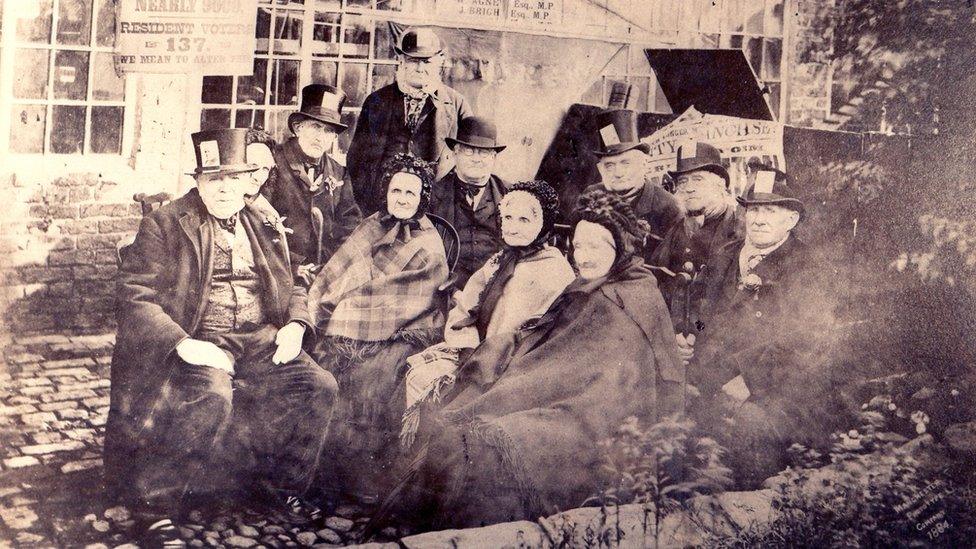
Eleven people who witnessed the 1819 Peterloo Massacre were photographed together 65 years later
Descendants of Peterloo survivors have spoken of their pride after research by an academic revealed their ancestors took part in the protest.
Historian Michala Hulme traced families from a photo as part of efforts to mark Peterloo's 200th anniversary.
All but one had been unaware of their links to the rally in which cavalrymen on horseback killed protesters.
Miss Hulme believes it is the first time Peterloo relatives have been traced from an image.
In 2018, she was shown a book containing a photograph dated 1884 depicting a group of elderly activists.
Newspaper articles about the book revealed they were, in fact, "the last living of that gallant band of Failsworth Reformers who were present at that memorable but disgraceful massacre which took place at Peterloo in 1819".
Allow X content?
This article contains content provided by X. We ask for your permission before anything is loaded, as they may be using cookies and other technologies. You may want to read X’s cookie policy, external and privacy policy, external before accepting. To view this content choose ‘accept and continue’.

Sixty-five years before the photo was taken, the four women and seven men were among up to 80,000 who gathered in Manchester's St Peter's Field to demand representation in parliament.
The protest ended in bloodshed when the Yeoman Cavalry sent to police the rally were ordered to charge into the crowd, killing up to 18 and injuring about 700.
A photographer captured the group at a rally to support the 1884 Reform Act, which extended the vote for the first time to men who did not own property.
Behind them is a banner they displayed at Peterloo.
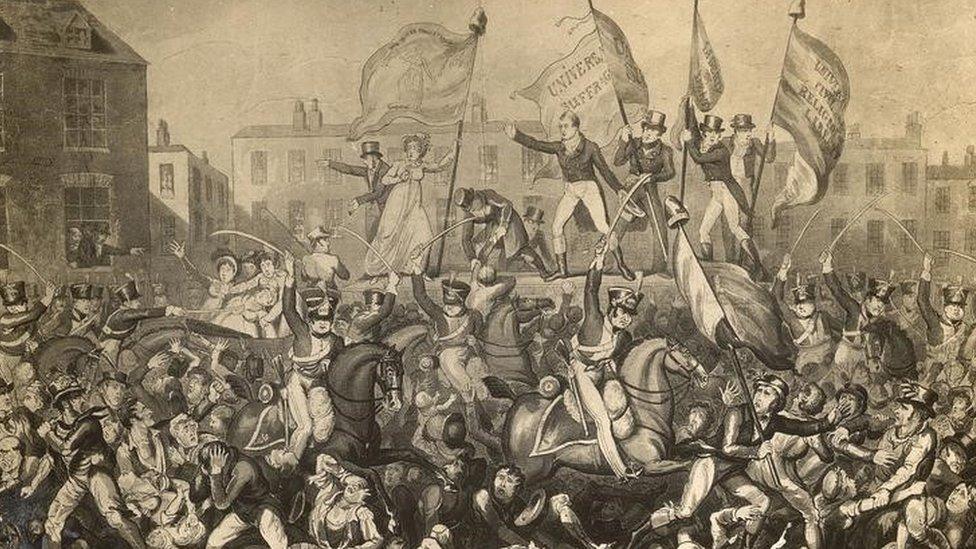
A troop of cavalrymen charged into a huge workers' protest
Unusually for photographs of the working classes from the era, says Miss Hulme, it was accompanied by names and dates, allowing the Manchester Metropolitan University lecturer to begin a year-long search for relatives.
She used census records and birth, marriage and death registers to find relatives of nine of the 11 people in the photograph.
This week, their families met for the first time.
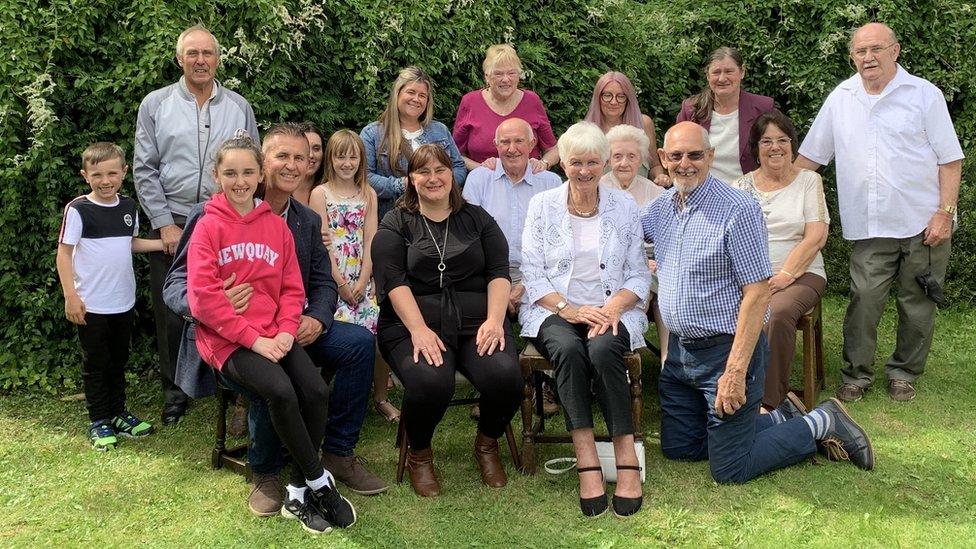
The families spoke of their pride at learning of their links to Peterloo
Miss Hulme said: "Peterloo shaped modern politics and activism.
"Lots of work has been done to find details of people who were at Peterloo from information we have from their descendants, but this is the first time anybody has been able to trace a number of descendants who weren't aware of their links.
"All of the families were surprised and, particularly since they met, the significance of what their ancestors did has dawned on them."
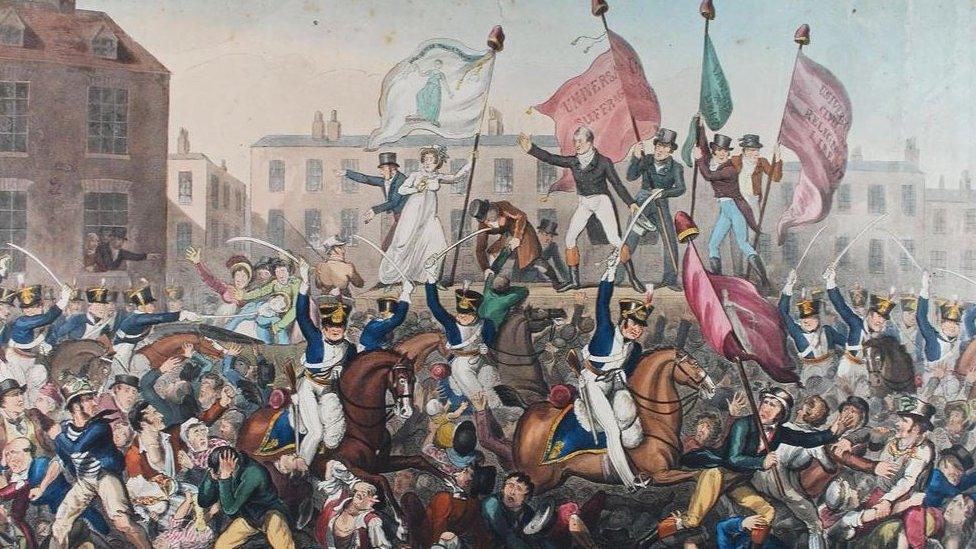
As many as 18 people were killed
Among those brought together by Miss Hulme was Kirsty Wolstencroft, who still lives near Oldham and is the great-great-great-great granddaughter of Thomas Chadderton, pictured third from left in the 1884 image.
She attended the photo shoot with her father and two children.
She said: "I'm proud that someone in my family had taken such a step towards democracy and for people's right to vote."
Meanwhile, the National Archives has put on display a collection of documents that relate to Peterloo.
They include a handwritten note that is one of the earliest accounts of the events.
Signed by Huddersfield magistrate Haigh Allen, it describes how flags were hoisted as Henry Hunt addressed "upwards of 60,000 people".
He added that "several lives are lost and a number wounded".
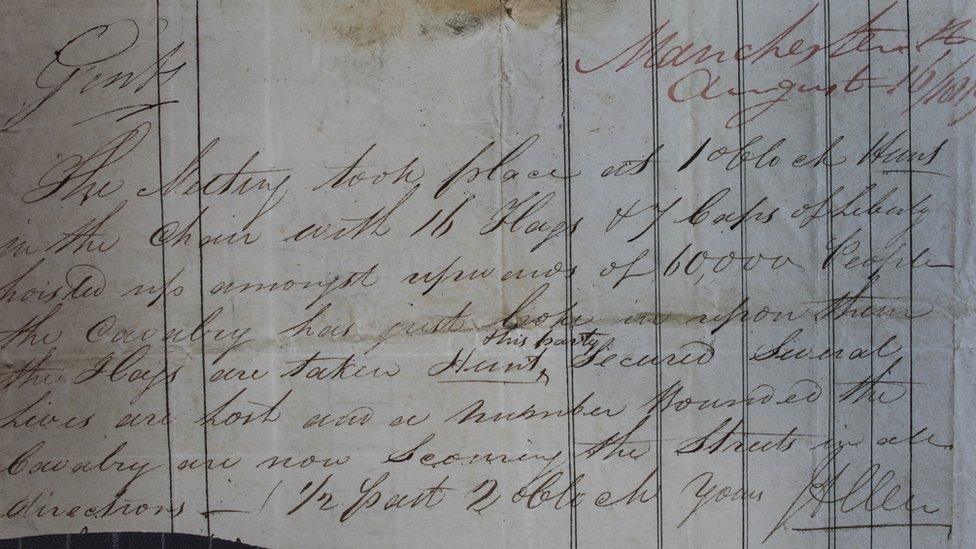
This handwritten note from magistrate Haigh Allen is an early written account of what happened
An "immersive" event blending "giant karaoke and autocue" will take place on the site of the massacre in Manchester on Friday.
Evie Manning, the director of From the Crowd, said the performance would be "a dialogue between 1819 and 2019".
Three ticketed performances of From the Crowd will take place, at 12:30, 17:30 and 20:00.
At 13:30, film directors Mike Leigh and Danny Boyle will be involved in reading out the names of the 18 people who died as red smoke pours from Manchester Cathedral.
Other events over the anniversary weekend include screenings of Leigh's film about the massacre and an unveiling of a blue plaque dedicated to John Knight, who was jailed for his part in the rally.
- Published14 August 2019
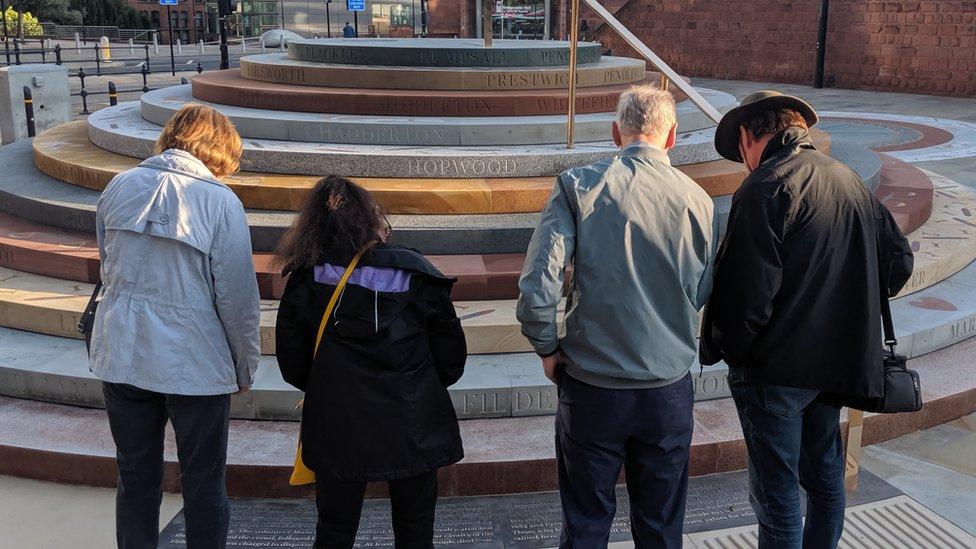
- Published24 July 2019
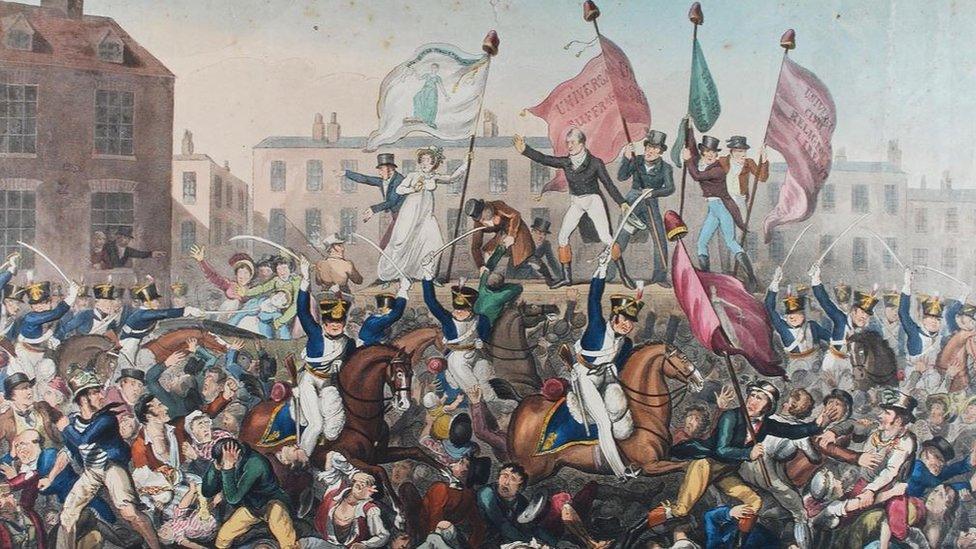
- Published9 May 2019
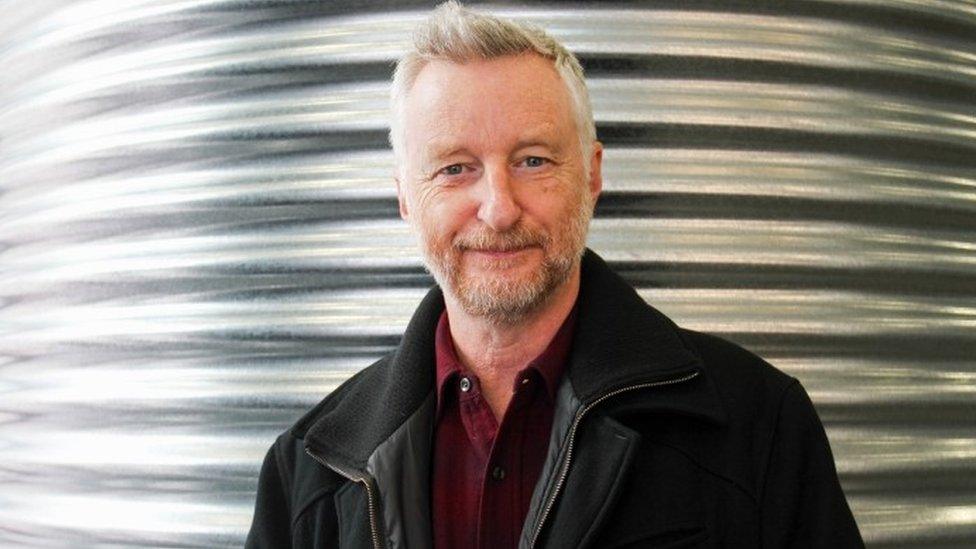
- Published21 October 2018
